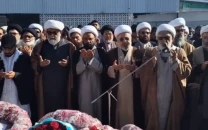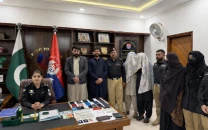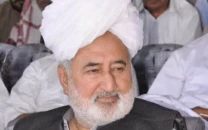What does ‘Bangladesh’ mean?
No one will tell you what ‘Bang’ in Bangladesh means, except some bold joiners of the dots in ancient history.

What does ‘Bangladesh’ mean?
Some others believe that the name originated in the Bodo (original Asamese in North Eastern India) ‘Bang La’, which means wide plains. One of the tribes which emerged from the Indus Civilisation after its demise had entered the plains of Bengal, while others went elsewhere. They were called the Bong tribe and spoke Dravidian. We know from many ancient Aryan texts of a tribe called Banga.
Chaudhry Rehmat Ali, who did not include Bengal in the coined word Pakistan, did create an imaginary state among many in India in his dreaming book Now or Never (1931). He called Bengal ‘Bang-e-Islam’ (call to prayer of Islam) and included all of Bengal, West Bengal too. Bengal was a Muslim majority province. Although he had punned on the word, he had hardly explained it.
Two men of south Punjab whose service to Urdu will be remembered are Muhammad Khalid Akhtar and Muhammad Kazim, the latter still living. If you haven’t read much of Urdu literature, read their book reviews.
Kazim, in his book of reviews, Kal ki Baat (Readings Lahore, 2010), tells us that Aurangzeb’s minister Abul Fazl had opined that Bangla was actually Bangal and that ‘al’ in it meant enclosure. Today, ‘aal’ is taken to mean home, from a sense of ‘outer wall making an enclosure’.
Place names today usually end in ‘aal’ or ‘aala’, giving the meaning of home. The most beautiful among them is Chitral, literally meaning home of beautiful/colourful pictures. In pre-Partition Lahore, there was a film magazine in Urdu named Chitrali. Of course it did not mean a magazine devoted to the people of Chitral!
Anciently, Sri Lanka was Singhal, home of lions, which changed to Sihala (sic!) in 543 BC. (We have our Sihala near Islamabad.) The Portuguese called it Cilaon probably from Sanskrit Sri Lanka, which the Sri Lankans prefer today. The Portuguese are funny. They changed Arabic ‘mausim’ to ‘monsaon’, which has given us the word ‘monsoon’.
In Punjabi, the word ‘aal’ is found in two words: ‘aalna’ (diminutive) for nest and ‘aalay-dawalay’ for ‘that which surrounds’. The name Gujranwala was formed from Gujran-aala. ‘Him’ in Sanskrit means ‘frozen’, from where we have the word Himal or Himala. ‘Shivala’, used by Allama Iqbal in Urdu, means home of Shiva.
From the sense of ‘surrounding’ we get the Hindi word ‘aali’ which is the root of our Urdu word ‘sahaili’ meaning ‘friend of the bride’ because girlfriends sit ‘around’ the bride. ‘Sa’ is the prefix for ‘good’. This could be cognate with ‘saali’ (sister-in-law) and ‘saala’. The home of the father-in-law (sassur) is called ‘sassur-aal’. Lovers too are included, as in the bhajan ‘angana main ayay aali’. Here ‘aali’ is master (of home).
In Sanskrit there are dozens of words for home, many of them indirect like ‘aal’. In the Urdu word ‘ghonsala’ (nest) there is ‘ghun’ (concealed) and ‘shala’ (home). A whole lot of them come from the sense of being ‘cut off’. Of that next time.
Published in The Express Tribune, September 7th, 2011.



















COMMENTS
Comments are moderated and generally will be posted if they are on-topic and not abusive.
For more information, please see our Comments FAQ